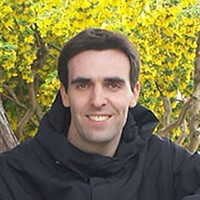Tim Peake announces surprise encore mission to space
Loading...
British astronaut Tim Peake, who once said he’d return to space "in a heartbeat," must have wished upon a star because a second mission is in the works.
The first official British astronaut unleashed "space fever" in England with his historic six-month visit to the International Space Station in 2015. While a number of British-born astronauts had journeyed into space either with NASA or private funding, Major Peake was the first to fly as a representative of the European Space Agency (ESA). Now, he’s heading back.
British Business Secretary Greg Clark made the announcement Thursday at the London Science Museum while unveiling its newest exhibit: the Russian Soyuz TMA-19M capsule that brought Peake back to Earth.
Peake was on hand for the occasion. "It's amazing that it still bears the scorch marks of our entry into the atmosphere at 1,600C, which was punishing," he said, The Telegraph reports.
But hitching a ride into space isn’t as comfortable as it sometimes looks in the movies. "The capsule was tightly packed. It's one of the only times in my life that I was grateful for being 5ft 8in," he added.
While aboard the ISS, Peake worked more than 14 hours per day on hundreds of scientific experiments and reached more than a million school children with outreach programs such as The Great British Space Dinner and Astro Academy: Principia.
"I'm delighted that they've got involved," he said in a press conference last year. "I'm delighted that they've been encouraged and been inspired to look at space and to look at science in a different way. And I hope it does inspire them to continue their interest in science."
The impact didn’t go unnoticed by the British government. "Tim Peake's Principia mission inspired a generation, and showed just how far science can take you," Mr. Clark said.
Peake also set a number of records aboard the ISS including growing the first space flower, running the fastest space marathon, and calling what could have been the first wrong number from space.
And somehow in between all his other activities, he found time to become an accomplished space photographer.
Now, Peake is looking forward to experiencing that out-of-this-world perspective once more. "It is only natural to want to return. The one thing you miss is the view of planet Earth, of course. It is the most spectacular thing you can possibly see," he told Sky News.
Exactly when he’ll get that chance is up to the ESA, but it will likely fall sometime in the early 2020s during the next wave of European manned missions. The agency has focused on probes such as Rosetta and Mars Express in recent years, but plans to participate in the ISS program through 2024, and even harbors ambitions of coordinating an international "moon village" in the 2030s.
For now, Peake can’t wait to get back into space and continue his mission. "It's what every astronaut wants to do," he said.








